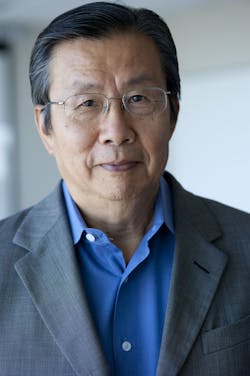
What can I expect when negotiating a patent license with my university? I am particularly interested in getting an exclusive license.
Generally, universities want to see their technology commercialized and tend to take a paternal posture in negotiating if the inventor is actively involved or has significant ownership in the company (see Comment, p. 76). The first thing universities usually focus on is the royalty rate, which depends on the strength of the patent and the perceived market size. Most royalty rates are 1% to 5% of the selling price. If several patents are involved, then the rate is reduced or is based on a portion of the product that pertains to the invention to avoid stacking of royalties.
Then there is the up-front royalty. Most universities require the licensee to cover patent expenses. The royalty rate is reduced if one is willing to pay a higher up-front licensing fee, or to give the university equity in the company. More universities are willing to get “a piece of the action,” reflecting the broad interest in entrepreneurship and everyone’s desire to hit upon another Google. Since start-up companies are risky in the early phase, universities usually ask for protection against dilution. They usually want their percentage ownership maintained until the company meets certain performance goals. For one university, the milestone is when the company has raised a total of $10 million investment capital. It is prudent to set a limit on the costs of a patent.
Some universities are willing to grant exclusive licenses even though they may be concerned that exclusivity can prevent commercialization. On the other hand, the license is of considerably less value if a company cannot practice “legalized monopoly” by being exclusive. An exclusive license usually has a larger up-front payment plus minimum annual royalty to make sure the licensee is serious. The university would usually want to have recourse if the company cannot succeed. One university limits exclusivity to five years at the beginning, but exclusivity can be renewed if the company can meet a set of goals.
Some licensees want a paid-up license, which is really buying the patent outright. Logically the valuation is determined by the current value of the potential royalty stream, which is determined by the market size and the number of years the technology would provide a competitive advantage, both of which are highly speculative. It usually ends up being a number both parties can justify and live with, rather than one determined analytically.
In the final analysis, universities are concerned with image and public relations. Most are quite reasonable in their licensing policy and how they negotiate with companies. They realize company owners can potentially make donations in amounts far greater than any royalty income. Some universities are easy-going in granting licenses, taking an altruistic viewpoint that technology is to benefit mankind and are willing to forego some income for a cause. The surprising thing is very few universities actually make a profit relative to the costs of maintaining a licensing office and its activities. Companies and universities are increasingly paying attention to protecting intellectual property; at the same time, more companies view patents not as a competitive advantage, but more as a way to gain the rights to enter a market.
How does an entrepreneur lead a balanced life between family and business?
I am not sure I know what balance means. I worked incredibly hard early in my career-16-7 or more, and never took a vacation for 11 years. Becoming an entrepreneur is our choice, and my family accepted that lifestyle as a tradeoff. What is important is feelings and attitudes, which translates into the quality of time together. Time spent together is never enough, really-and there is no question that there is going to be stress and hard work in running a business. It is a lot easier to cope with any hardship when there are no unrealistic expectations, and when it is a joint decision.
About the Author
Milton Chang
MILTON CHANG of Incubic Management was president of Newport and New Focus. He is currently director of mBio Diagnostics and Aurrion; a trustee of Caltech; a member of the SEC Advisory Committee on Small and Emerging Companies; and serves on advisory boards and mentors entrepreneurs. Chang is a Fellow of IEEE, OSA, and LIA. Direct your business, management, and career questions to him at [email protected], and check out his book Toward Entrepreneurship at www.miltonchang.com.
